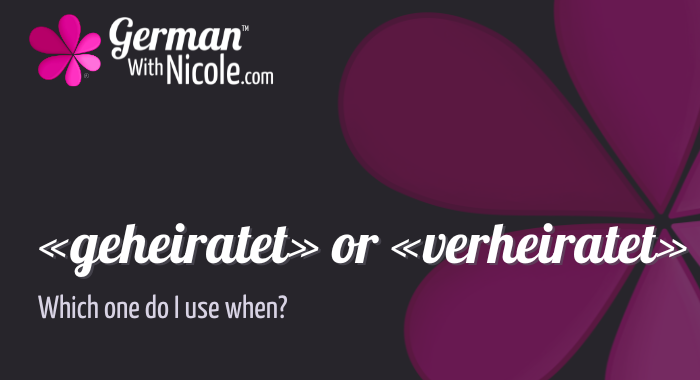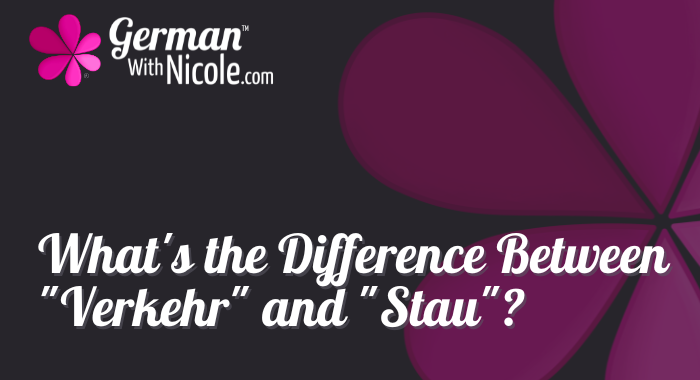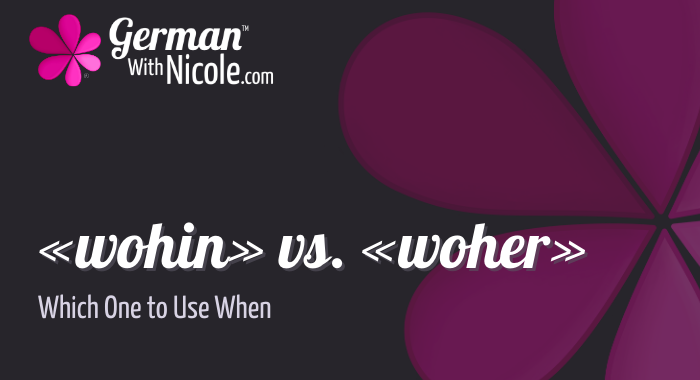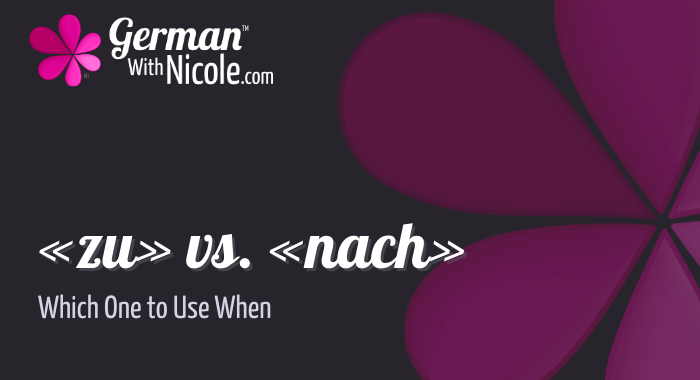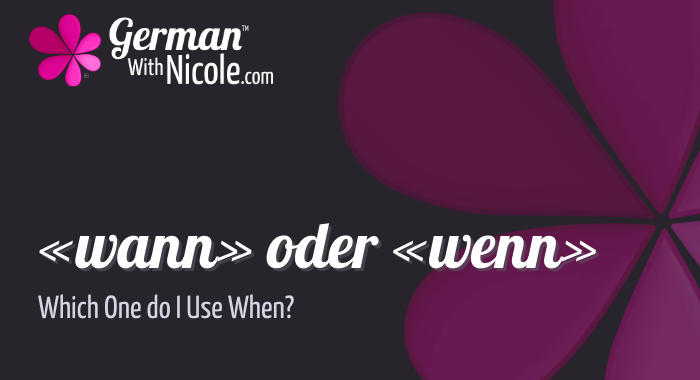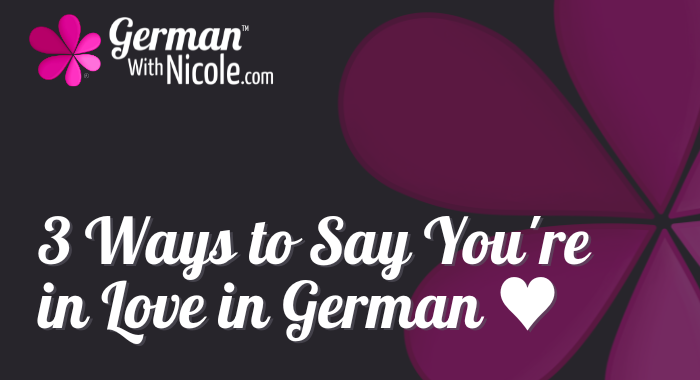Good ol'-fashioned RSS Feed
das Blog
3 Easy Ideas for Your «Adventskranz»
der Adventskranz = advent wreath
Do you know the difference between Advent and Christmas?
Growing up, I never really understood the difference. I even got an Advent calendar from my grandmother every year, but nobody ever explained to me the difference very clearly.
So you can imagine that it was a bit of a shock when I moved to Germany and found out: »Advent ist nicht Weihnachten!«.
No, Advent is *not* Christmas. It is the time before Christmas.
Here's how I learned the difference. I use…
Why I Loathe Trick Questions in German Learning Books
Heads-up: this is a rant post.
A long time ago I used a German book for both classes and lessons that wasn’t a good fit for either population. I didn’t like the layout, I didn’t like the cartoons, the instructions weren’t always clear, and sometimes the workbook exercises differed from what was in the chapter.
That made teaching with this book difficult, and it created an excessive amount of prep work, which caused me a lot of stress, because it also didn’t answer my students’ many questions. …
When do I use "geheiratet" and "verheiratet"?
"Geheiratet." Nein. "Verheiratet." Ich weiss es nicht!
I know how it goes, these two can be really tricky, however they are similar enough to English that you can learn a couple of associations to help you keep them apart in your mind.
Sometimes you simply need rote memorization, and sometimes you need a way of remembering which one is which. Sometimes this is an Eselsbrücke (a "donkey-bridge" or a mnemonic device), sometimes you need an association, and sometimes you need a picture in your mi…
What's the Difference Between "Verkehr" and "Stau"?
When you're at the A1 level, "Verkehr" and "Stau" can be tough to differentiate. Most people say "It has something to do with cars!!" If you said that, you're correct! But what's the difference?
The difference is essentially the same as in English, but one use of "Verkehr" might trip you up.
Read on to learn the difference and how not to get tripped up by the one use of "Verkehr"!
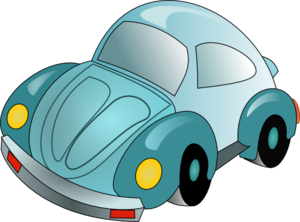 Was bedeutet "Verkehr"?
Was bedeutet "Verkehr"?
Verkehr is simply the word for traffic. You can have multiple types of Verkehr:
- …
"wohin" vs. "woher"
If you learned German in college, chances are you learned both “woher” and “wohin” at the same time.
Do you ever drive in reverse and forwards at the same time?
I didn't think so.
Why so many US textbook authors think this is a good idea is beyond me.
In drivers education, first you learn to drive forwards, you get a feel for the car, and then you learn to drive in reverse.
It's not that hard, textbook authors!
*Nicole facepalms and sighs with exasperation.*
That's a really good way…
"zu" vs. "nach"
"Zu..." no. "Nach..."
Wait! Which one do I use? GAH!
Have you said that before? I bet you have, as I’ve heard it from every beginning German learner I’ve worked with. And a lot of intermediate level speakers, too.
The difference is: with “zu” and “nach,” size makes a difference. But not how you might think.
When do I use “zu”?
“Zu” is used for places like
- die Bäckerei
- die Post
- your friend Michael’s house
- die Arbeit
- die Bushaltestelle
These are, in fact, all smaller places. A …
"wann" vs. "wenn"
This is a source of frustration for so many German learners. "Wann" and "wenn" are too similar and as a result, lots of people mix them up.
They both mean when, however when you use them is completely different.
Are you ready to learn which word to use when?
Los geht’s!
Which “when” is “when”?
First you need to clearly differentiate the two words “wann” and “wenn.”
| wann | wenn |
|
3 Ways to Say You're in Love in German ♥
"Alte Liebe rostet nicht" say the Germans.
Old love doesn't rust.
Neither does new love!
So how do you say you're in love in German?
There's the classic, direct way:
Ich liebe dich.
Yeah, that's a good one.
And it's a big one.
If you don't want to jump in at the deep end of the pool, here are a few suggestions for you to talk about it.
There are a few standard ways of saying you're in love with someone as well as a couple of slang ways to say it.
If you're on the look-out for "like" ra…
How I Prepared for My Swiss Citizenship Interview
This is an email that I received from a client this summer after she had her Swiss Citizenship Interview. In addition to practicing speaking in German, we spent several lessons discussing the Swiss governmental system and how to prepare mentally for such an exam. Our final lesson before her interview was a practice interview. Here’s what she had to say.
N.B. This email has been edited for privacy, clarity and formatting.
Hello Nicole!
I did make it through my German language test in Switz…
Ich bin zertifiziert! - I'm certified!
If you've been reading this blog for a while, you'll know that I have been working on an official certification for teaching German as a Foreign Language. I started at the end of 2015 and got really behind so I ended up spending much of last summer sitting at my computer, working through all the information. It was a tough slog.
Sechs Module - Six Modules
The course has 6 different modules and each module was the equivalent of a 120-page book plus exercises. The exercises ranged from simple re…
Categories
- A1 (70)
- A2 (55)
- B1 (47)
- B2 (24)
- C1 (22)
- Deutsch lernen (82)
- Einkaufen (15)
- Essen (12)
- Grammatik (24)
- Hören (14)
- Landeskunde und Kultur (50)
- Lesen (11)
- Musik (5)
- Nachrichten (4)
- Podcast (66)
- Pronunciation (3)
- Schreiben (4)
- Schwäbisch (4)
- Spiele und Spaß (Games and Fun) (12)
- Sprechen (12)
- Vokabeln (41)
- Video (13)
Would you like to hear about future German classes with Frau Warner?
With the E-Post, you'll receive information on German class registration and goings-on in German classes, all written by Frau Warner. You'll receive an email on Tuesdays, plus an extra email or two when class registration opens or there's something new.
If you use Gmail: please check your "promotions" folder.


